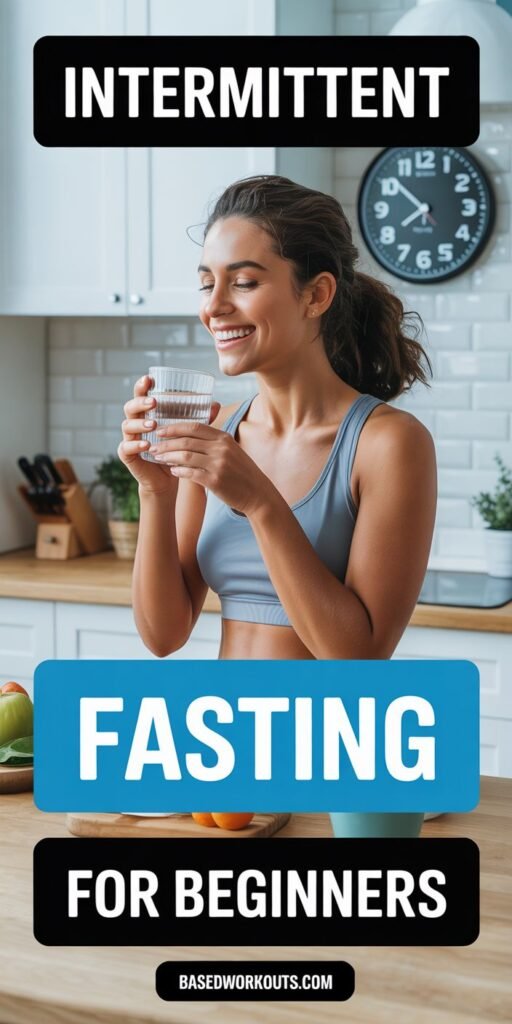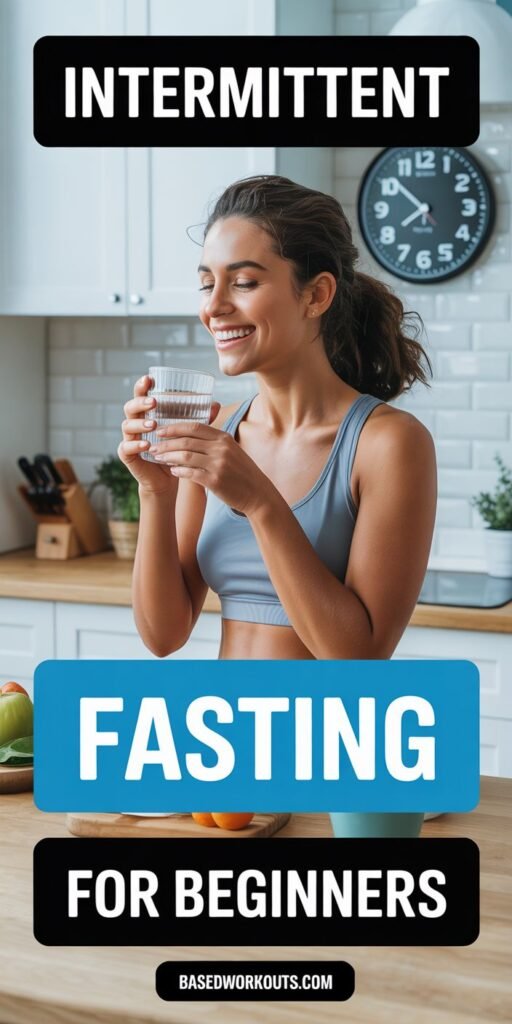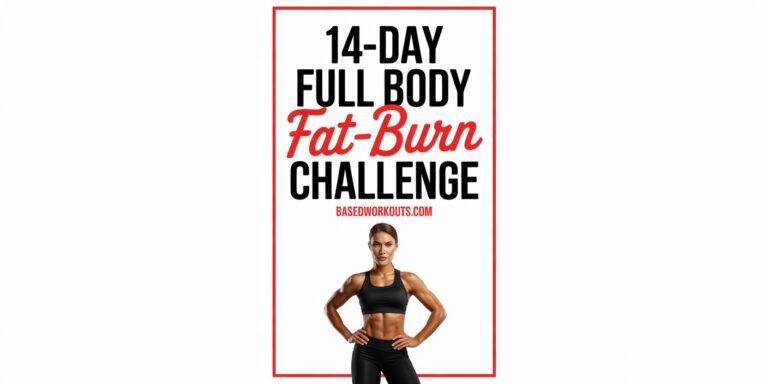If you’ve been scrolling through health and fitness content lately, chances are you’ve come across the term intermittent fasting (IF) more than once.
It’s become one of the most popular diet trends worldwide—not because it’s another quick-fix fad, but because it’s backed by both science and real results.
From celebrities and athletes to everyday people trying to lose weight or improve their health, intermittent fasting has helped millions simplify the way they eat while seeing noticeable changes in their body and energy levels.
So, what exactly is intermittent fasting? Unlike traditional diets that tell you what to eat, IF focuses on when you eat.
It’s an eating pattern that cycles between periods of fasting (not eating) and eating, giving your body time to rest, reset, and burn stored fat more efficiently.
Think of it as giving your digestive system a break while allowing your metabolism to work smarter, not harder.
For beginners, the idea of fasting can sound intimidating—but here’s the truth: you’re already fasting every day without realizing it. Every time you sleep, you’re naturally fasting.

Intermittent fasting simply extends that fasting window a little longer and helps you structure your meals so you can tap into fat-burning mode, balance hormones, and even improve mental clarity.
Some of the most talked-about benefits of intermittent fasting include:
- Weight loss and fat burning without strict calorie counting
- Improved insulin sensitivity and blood sugar control
- Better digestion and gut health
- Increased energy and focus throughout the day
- Anti-aging and longevity benefits from cellular repair processes
But how do you actually get started? With different methods like 16:8, 5:2, and alternate day fasting, it can feel confusing to know which one is right for you.
And of course, the big question is: What should I eat when I break my fast?
That’s exactly why this guide was created. In this beginner-friendly breakdown, we’ll cover everything you need to know about intermittent fasting, including:
✅ The science behind how it works
✅ The most popular fasting schedules (and how to choose one)
✅ A beginner meal plan with real food ideas
✅ Common mistakes to avoid so you can succeed long-term
✅ Tips to make intermittent fasting sustainable and enjoyable
By the end of this guide, you’ll have a clear, step-by-step understanding of intermittent fasting—without the confusion, frustration, or overwhelm.
Whether your goal is to lose weight, boost energy, or simply build a healthier lifestyle, intermittent fasting can be the simple, flexible approach you’ve been looking for.
Once you understand the basics, try the 16:8 Intermittent Fasting Plan for Weight Loss & a Healthy Lifestyle to put this method into action.
What is Intermittent Fasting?
Intermittent fasting (often called IF) is not a diet in the traditional sense — it’s an eating pattern that alternates between periods of eating and periods of fasting.
Instead of focusing on what foods to eat, intermittent fasting focuses on when you eat them.
During the fasting window, you don’t consume any calories, giving your body time to reset its metabolism, use stored fat for energy, and activate natural repair processes.
During the eating window, you eat your normal meals — ideally choosing nutrient-rich, balanced foods.
The core idea is simple: by creating structured gaps between meals, you give your body a chance to burn fat more efficiently, improve insulin sensitivity, and promote overall health without needing to follow complicated meal plans or eliminate entire food groups.
How It Works
When you fast, several beneficial changes happen inside your body:
- Insulin levels drop → making it easier to burn stored fat for energy.
- Growth hormone rises → supporting fat burning, lean muscle preservation, and recovery.
- Cellular repair kicks in → through a process called autophagy, where damaged cells are cleared out.
- Metabolic flexibility improves → your body learns to switch between burning glucose (from food) and fat (from storage).
This combination of hormonal balance and cellular repair is what makes intermittent fasting more than just a tool for weight loss — it’s a strategy for long-term health and energy.
Featured Amazon Gear for Intermittent Fasting Beginners
New to Intermittent Fasting?
Starting your fasting journey doesn’t have to be confusing. With the right tools and simple structure, you can stay consistent, reduce hunger, and see results faster.
Below are my favorite Amazon essentials that make intermittent fasting easier, more effective, and beginner-friendly.
| Product | Why You’ll Love It | Shop Now |
|---|---|---|
| Intermittent Fasting Beginner’s Book | Learn everything about fasting windows, meal timing, and fat-burning phases in one easy guide. | Check Price on Amazon |
| Black Coffee Variety Pack | Zero calories, fast-safe, and helps suppress appetite — a must-have during fasting hours. | View on Amazon |
| Apple Cider Vinegar Capsules | Support digestion, reduce cravings, and maintain energy without breaking your fast. | Shop Now |
| Smart Body Weight Scale (Bluetooth) | Track your body fat, muscle, and progress directly from your phone — perfect for motivation. | Buy on Amazon |
| Meal Prep Journal | Plan your fasting schedule and eating windows with daily meal notes and hydration goals. | See Details |
| Healthy Snack Cookbook | Find fast-friendly meal and snack ideas to make your eating window balanced and satisfying. | View on Amazon |
These beginner-friendly tools help you ease into intermittent fasting the right way — making the process simple, enjoyable, and results-focused from day one.
How Intermittent Fasting Works
At its core, intermittent fasting works by taking advantage of how the body processes and stores energy. When you eat a meal, your body breaks down carbohydrates into glucose, which is your primary source of fuel.
Glucose enters the bloodstream, insulin levels rise, and your cells absorb this sugar to use for energy or store it as fat for later.
But when you stop eating for an extended period (fasting), your body shifts gears. Without a constant flow of glucose from food, insulin levels drop.
This drop is key because it signals your body to tap into its fat stores for energy.
Instead of relying on the carbs you just ate, your body begins burning stored fat — exactly what most people want when trying to slim down or improve their health.

What Happens in Your Body During Fasting
- Insulin Levels Decrease
Every time you eat, insulin rises to help shuttle glucose into your cells. But when insulin is constantly high (from frequent snacking or overeating), fat burning slows down. Intermittent fasting gives insulin a break, allowing your body to access fat reserves more easily. - Switch from Glucose to Fat for Energy
After about 10–12 hours without food, your body starts running low on glucose and glycogen (stored carbs in your muscles and liver). That’s when the switch happens — your body turns to fat as its main energy source. The longer you fast, the stronger this fat-burning effect becomes. - Boost in Human Growth Hormone (HGH)
Fasting naturally increases HGH levels, which play a crucial role in muscle growth, fat metabolism, and recovery. This is why intermittent fasting is often paired with strength training — it helps preserve lean muscle while burning fat. - Autophagy: Cellular Repair and Detox
During fasting, your body activates a powerful process called autophagy. Think of it as a built-in recycling system: old, damaged cells and proteins are broken down and cleared away, making room for healthier cells. This process supports longevity, disease prevention, and overall vitality. - Better Metabolic Flexibility
With regular fasting, your body becomes more efficient at switching between glucose (from food) and fat (from storage) as fuel. This means fewer blood sugar crashes, more stable energy throughout the day, and reduced cravings.
Why This Matters for Fat Loss and Health
Most diets focus on reducing calories or eliminating certain foods. Intermittent fasting, however, works by timing your meals so that your body spends more time in fat-burning mode.
It’s not just about eating less; it’s about giving your body the space it needs to reset hormones, burn fat, and repair itself naturally.
This is why so many people find intermittent fasting effective not just for weight loss, but also for better mental clarity, improved digestion, and long-term health benefits.
Types of Intermittent Fasting
One of the biggest reasons intermittent fasting has become so popular is its flexibility.
There’s no single “right” way to do it — instead, there are several approaches you can choose from depending on your lifestyle, goals, and comfort level. Here are the most common types of intermittent fasting:

1. The 16/8 Method (Time-Restricted Eating)
- Fast for 16 hours and eat within an 8-hour window.
- Example: Eat between 12 PM and 8 PM, fast from 8 PM to 12 PM the next day.
- Best for beginners, as it mimics natural eating patterns.
2. The 5:2 Diet
- Eat normally for five days a week and consume only 500–600 calories on two non-consecutive days.
- Helps with calorie restriction without daily fasting.
3. Alternate-Day Fasting
- Fast every other day, consuming little to no calories on fasting days.
- Suitable for those seeking rapid weight loss.
4. The Eat-Stop-Eat Method
- Fast for 24 hours once or twice a week.
- Example: Finish dinner at 7 PM and don’t eat again until 7 PM the next day.
5. The Warrior Diet
- Eat small amounts of raw fruits and vegetables throughout the day, followed by one large meal at night.
- Mimics the eating patterns of ancient warriors.
Benefits of Intermittent Fasting
Intermittent fasting isn’t just a trend—it’s a well-researched lifestyle approach that offers numerous health and wellness benefits beyond weight loss.
When practiced consistently, fasting helps your body enter a “repair mode” that promotes fat burning, hormonal balance, and overall well-being. Let’s explore the key benefits:

1. Accelerates Fat Loss
When you fast, your body burns through glycogen (stored carbs) and then begins using stored fat for energy.
This process, known as metabolic switching, is one of the reasons intermittent fasting works so well for fat loss.
- You’re essentially teaching your body to become a fat-burning machine instead of relying on sugar and constant snacks.
- People often notice the biggest reduction in stubborn belly fat, which is linked to higher risks of diabetes and heart disease.
- Pairing fasting with strength training helps preserve lean muscle while shedding fat, giving you a leaner, toned look.
2. Improves Insulin Sensitivity
Constant eating keeps blood sugar levels high, which over time may lead to insulin resistance.
Intermittent fasting gives your body a break, allowing insulin levels to drop naturally.
- Lower insulin means your body can access stored fat more efficiently.
- Studies show intermittent fasting can reduce fasting blood sugar by 3–6% and insulin resistance by up to 30%.
- This makes IF especially helpful for people with prediabetes, metabolic syndrome, or those struggling with energy crashes after meals.
3. Boosts Human Growth Hormone (HGH)
During fasting, your body produces significantly higher levels of human growth hormone (HGH)—sometimes up to five times the normal amount.
- HGH helps maintain lean muscle mass while promoting fat burning.
- It also plays a role in cellular repair, tissue growth, and skin health.
- Many people notice they not only lose fat faster but also recover better from workouts while fasting.
4. Supports Heart Health
Your cardiovascular system benefits greatly from intermittent fasting. Research shows fasting may:
- Lower LDL (“bad”) cholesterol levels.
- Reduce triglycerides, which are linked to heart disease.
- Decrease blood pressure in people with hypertension.
- Reduce inflammatory markers, which contribute to atherosclerosis (hardening of the arteries).
All of these factors combine to create a healthier heart and stronger circulatory system.
5. Enhances Cellular Repair (Autophagy)
One of the most fascinating benefits of fasting is autophagy—a process where your body “cleans house” by breaking down old, damaged cells and replacing them with new, healthy ones.
- Think of it as your body’s internal recycling system.
- Autophagy has been linked to longevity and a reduced risk of chronic diseases like cancer and neurodegeneration.
- This process only kicks in when your body is not busy digesting food—making fasting the perfect trigger.
6. Boosts Brain Function & Mental Clarity
Intermittent fasting doesn’t just transform the body—it sharpens the mind.
- Fasting increases BDNF (Brain-Derived Neurotrophic Factor), a protein that supports brain cell growth and repair.
- Higher BDNF is linked to improved memory, learning, and protection against diseases like Alzheimer’s and Parkinson’s.
- Many people report increased focus, productivity, and mental clarity when fasting, thanks to stabilized blood sugar and reduced brain fog.
7. Reduces Inflammation
Chronic inflammation is the root cause of many diseases, from arthritis to heart disease. Fasting helps reduce inflammatory markers in the body.
- This may result in reduced joint pain, fewer energy crashes, and an overall feeling of vitality.
- Athletes often use IF to recover faster from intense training sessions.
8. May Extend Lifespan
Animal studies show intermittent fasting can increase lifespan by promoting cellular repair, reducing oxidative stress, and improving overall metabolic health.
While human research is still ongoing, many experts believe IF could be a simple strategy for living longer and healthier.
9. Simplifies Your Lifestyle
Unlike complicated diets that require meal prepping six times a day, intermittent fasting makes life easier.
- With fewer meals to plan, shop for, and cook, IF saves both time and money.
- Many people enjoy the freedom of not constantly worrying about food, which makes IF more sustainable long-term than restrictive diets.
Key Takeaway:
Intermittent fasting does much more than help you shed pounds.
It improves insulin sensitivity, supports heart and brain health, stimulates powerful cellular repair processes, and may even extend your lifespan.
Combined with a balanced diet and active lifestyle, IF can transform your health inside and out.
You can also explore how intermittent fasting impacts your overall health and metabolism in our post on Intermittent Fasting for Beginners: A Complete Guide to Weight Loss & Health.
Intermittent Fasting Meal Plan for Beginners
Starting intermittent fasting doesn’t mean starving yourself — it’s about eating smarter within a set time window.
For beginners, the 16:8 method (fast for 16 hours, eat within an 8-hour window) is the simplest and most sustainable.
Example Eating Window: 12 PM – 8 PM
(Fast from 8 PM to 12 PM the next day. Black coffee, water, or tea are fine during fasting hours.)

12:00 PM — Break the Fast (Lunch)
Start with a balanced, nutrient-dense meal to fuel your body without spiking blood sugar.
Meal Example 1:
- Grilled chicken breast (or tofu for plant-based)
- Quinoa or brown rice
- Steamed broccoli + mixed greens with olive oil
- ½ avocado for healthy fats
Meal Example 2:
- Salmon with roasted sweet potato
- Spinach salad with olive oil + lemon dressing
- Pumpkin seeds or walnuts on top
3:00 PM — Mid-Afternoon Snack
A light snack prevents overeating later while keeping energy stable.
Snack Options:
- Greek yogurt with chia seeds + blueberries
- Apple slices with almond butter
- Protein shake with unsweetened almond milk
- Handful of mixed nuts (almonds, walnuts, cashews)
6:00 PM — Dinner
Dinner should be filling, rich in protein, fiber, and healthy fats to keep you satisfied until the next day’s fast.
Meal Example 1:
- Lean beef, turkey, or lentil chili
- Mixed roasted vegetables (zucchini, carrots, bell peppers)
- Side of cauliflower rice
Meal Example 2:
- Grilled shrimp or tempeh stir-fry
- Jasmine rice or soba noodles
- Bok choy, mushrooms, and sesame seeds
Hydration During the Fast
- Water (still or sparkling)
- Black coffee (no sugar, cream optional if fasting flexibility is okay)
- Green or herbal tea
Adjustments for Beginners
- 12:12 method: If 16 hours feels tough at first, start with a 12-hour fast (8 AM – 8 PM eating window).
- 14:10 method: Next, move to 14 hours fasting, 10 hours eating.
- 16:8 method: Once comfortable, stick to 16 hours fasting, 8 hours eating.
Pro Tips for Success
- Break your fast with protein + fiber (not sugar-heavy foods).
- Prep meals ahead to avoid grabbing junk food.
- Keep electrolytes balanced (Himalayan salt, magnesium-rich foods).
- Stay consistent — your body adapts in 1–2 weeks.
Key Takeaway:
A beginner intermittent fasting meal plan should be simple, balanced, and satisfying. Focus on whole foods, lean proteins, healthy fats, and fiber-rich carbs to fuel your body while making fasting easy and sustainable.
Eating Window (12 PM – 8 PM)
Meal 1 (12 PM – Break Fast)
- Scrambled eggs with avocado toast
- A bowl of mixed berries
- Green tea or black coffee
Meal 2 (Snack – 3 PM)
- Greek yogurt with almonds and honey
- Herbal tea or lemon water
Meal 3 (Dinner – 7 PM)
- Grilled salmon with quinoa and steamed broccoli
- A side salad with olive oil dressing
- Herbal tea
Hydration Throughout the Fasting Period
- Water, black coffee, green tea, or herbal tea are allowed.
Tips for Success with Intermittent Fasting

Intermittent fasting (IF) is simple in theory — you eat within a set time window and fast for the rest.
But the reality is that success depends on how you prepare, what you eat, and how consistent you are.
Whether you’re fasting for fat loss, improved energy, or overall health, these tips will help you succeed and actually enjoy the process.
1. Start Slow and Build Up
One of the biggest mistakes beginners make is trying to jump straight into a long fast (like 16:8 or even 20:4) right away.
This often leads to intense hunger, headaches, irritability, or quitting too soon.
Instead, ease into fasting:
- Week 1: Try 12:12 (12 hours fasting, 12 hours eating).
- Week 2: Move to 14:10 (14 hours fasting, 10 hours eating).
- Week 3+: Transition into 16:8, which is the most popular and sustainable schedule.
This gradual build helps your body adapt and makes fasting much easier in the long run.
2. Stay Hydrated at All Times
Hunger is often mistaken for thirst. During fasting hours, water should be your best friend. Aim for 8–12 cups daily. You can also drink:
- Herbal teas (no sugar)
- Black coffee (without cream or sugar)
- Sparkling water (unsweetened)
Hydration reduces cravings, improves energy, and keeps digestion smooth when you break your fast.
3. Eat Nutrient-Dense, Whole Foods
What you eat matters just as much as when you eat. Fasting isn’t an excuse to binge on pizza, fried food, or sweets during your eating window.
Build meals around:
- Lean proteins: chicken breast, turkey, salmon, eggs, beans, tofu
- Healthy fats: avocado, nuts, seeds, olive oil
- Complex carbs: quinoa, brown rice, oats, sweet potatoes
- Fiber-rich veggies and fruits: broccoli, spinach, berries, apples
These foods not only support fat loss but also keep you full longer and fuel muscle repair.
4. Break Your Fast the Smart Way
How you break your fast can set the tone for the rest of your eating window.
If you go straight for processed carbs or sugary foods, your blood sugar will spike — leaving you tired and craving more junk.
Instead, open with a balanced meal that includes:
- Protein: eggs, Greek yogurt, lean meat
- Fiber: leafy greens, veggies, chia seeds
- Healthy fats: avocado, olive oil, nuts
For example, a great first meal could be scrambled eggs with spinach and avocado or Greek yogurt with berries and chia seeds.
5. Plan and Prep Your Meals
The eating window can tempt you to grab anything quick and convenient — which usually means unhealthy food. To avoid this:
- Prep protein-rich snacks (boiled eggs, nuts, pre-cooked chicken).
- Cook batches of lean proteins and grains ahead of time.
- Keep healthy snacks like fruit, hummus, and veggies ready.
Meal prepping removes guesswork and keeps you from breaking your fast with junk food.

6. Listen to Your Body
Not every fasting schedule works for everyone. Some people thrive on 16:8, while others prefer 14:10 or 5:2. The key is to pay attention to your energy, mood, and hunger cues.
If you feel weak, dizzy, or overly fatigued, adjust your fasting duration. Intermittent fasting should enhance your life, not make it harder.
7. Stay Busy During Fasting Hours
Idle time can make fasting feel longer. Instead of sitting around thinking about food, schedule your busiest tasks during fasting hours.
Work, workouts, or hobbies can keep your mind occupied until it’s time to eat.
8. Manage Stress and Prioritize Sleep
Stress and lack of sleep can ruin your fasting progress. High cortisol (stress hormone) increases cravings and makes fat loss harder.
Poor sleep also raises hunger hormones like ghrelin.
For success, aim for:
- 7–9 hours of quality sleep
- Stress-relieving practices like meditation, yoga, journaling, or walking
When stress and sleep are managed, fasting feels much easier.
9. Exercise Wisely
Working out while fasting is safe, but timing matters:
- Cardio: Great to do in a fasted state for fat burning, but keep it moderate (walking, cycling, light jogging).
- Strength training: Best done before breaking your fast. Follow up with a protein-rich meal to rebuild muscles.
If you feel lightheaded during workouts, adjust by moving them to your eating window.
10. Be Consistent and Patien
Many people quit because they don’t see fast results. But fasting is about long-term benefits, not overnight miracles.
It can take 2–4 weeks for your body to adapt fully and for results like fat loss, mental clarity, and better digestion to show.
Consistency is everything — stick with it, track progress, and make adjustments when needed.
11. Avoid Overeating in the Eating Window
One common trap is overeating or bingeing once the fast ends. Remember: fasting helps create a calorie deficit, but overeating during your eating period cancels that out.
Focus on portion control and eat until satisfied, not stuffed.
12. Keep It Flexible
Life happens — birthdays, travel, social events. Don’t stress if you break your fast earlier or eat outside your window occasionally. Flexibility keeps IF sustainable long-term.
Key Takeaway
Intermittent fasting isn’t just about skipping meals — it’s about building healthy habits around food, hydration, sleep, and stress.
If you ease into it, eat nutrient-rich foods, and stay consistent, IF can become a sustainable lifestyle that supports fat loss, muscle gain, and long-term health.
Frequently Asked Questions (FAQ)
1. Can I drink anything while fasting?
Yes, as long as it has little to no calories. Water, sparkling water, unsweetened tea, and black coffee are all allowed. Drinks like soda, juice, milk, or anything with sugar will break your fast.
2. Will intermittent fasting slow down my metabolism?
No — in fact, short-term fasting (up to 48 hours) may slightly boost metabolism due to increased norepinephrine (a fat-burning hormone). However, chronic undereating or extreme fasting can slow metabolism, so it’s important to eat enough during your eating window.
3. Can I exercise while fasting?
Yes, and many people actually enjoy working out in a fasted state.
- Cardio (like jogging, cycling, or walking) is great during fasting hours.
- Strength training is safe too, but make sure to refuel with a protein-rich meal afterward.
Listen to your body — if you feel weak or dizzy, move your workout to your eating window.
4. Does intermittent fasting cause muscle loss?
Not if done correctly. Fasting increases growth hormone and enhances fat burning while preserving lean muscle. To protect muscle, eat enough protein and consider doing strength training.
5. How much weight can I lose with intermittent fasting?
Results vary, but many people lose 1–2 pounds per week when combining fasting with balanced nutrition and exercise. Consistency is key — the longer you stick with it, the better the results.
6. Is intermittent fasting safe for women?
Yes, but women may respond differently than men. Some women find 14:10 fasting (14 hours fasting, 10 hours eating) more sustainable than 16:8.
Pregnant, breastfeeding women, or those with hormonal imbalances should consult a doctor first.
7. Can I take supplements while fasting?
Yes, but it depends on the supplement.
- Safe during fasting: electrolytes (no sugar), multivitamins, magnesium, black coffee + creatine.
- Best with food: fat-soluble vitamins (A, D, E, K), fish oil, and probiotics.
8. Does intermittent fasting work without exercise?
Yes, fasting alone can help with weight loss by reducing calorie intake. However, combining it with strength training and cardio gives the best results for fat loss, muscle preservation, and overall health.
9. How long does it take to see results?
Most people start noticing reduced bloating, improved energy, and slight weight loss within 2–3 weeks. Significant fat loss and body composition changes usually appear after 6–8 weeks of consistency.
10. Who should avoid intermittent fasting?
Intermittent fasting isn’t for everyone. You should avoid it if you are:
- Pregnant or breastfeeding
- Underweight or have a history of eating disorders
- Managing chronic health conditions (diabetes, low blood pressure, thyroid issues) without medical supervision
Always consult a healthcare professional if you’re unsure.
Bottom line: Intermittent fasting is a safe, flexible, and effective eating pattern for most people, but it’s not one-size-fits-all.
Success depends on finding the right method for your lifestyle and staying consistent.
Related Reading:
Conclusion
Intermittent fasting isn’t a fad or a quick-fix diet — it’s a sustainable eating pattern that focuses on when you eat rather than what you eat.
By creating structured fasting windows, your body gets the chance to reset, burn fat more efficiently, regulate insulin, and improve overall health.
Unlike restrictive diets that leave you feeling deprived, IF is flexible, customizable, and adaptable to almost any lifestyle.
For beginners, the most important step is to start slow and build a routine that feels natural. Whether you choose the 16:8 method, alternate-day fasting, or a 5:2 schedule, the key is consistency.
Pair fasting with nutrient-dense meals, hydration, and proper rest, and you’ll not only lose weight but also experience better energy, focus, and long-term wellness.
It’s also important to remember that intermittent fasting is not a “one-size-fits-all” approach. Some people thrive on longer fasts, while others prefer shorter ones.
Your success comes from listening to your body, making adjustments when needed, and focusing on the big picture of health rather than chasing overnight results.
If you stay patient and disciplined, intermittent fasting can become more than just a diet — it can be a lifestyle that supports fat loss, muscle preservation, brain health, and even longevity.
Think of it as a tool, not a restriction. Use it wisely, and it can transform both your body and your relationship with food.



